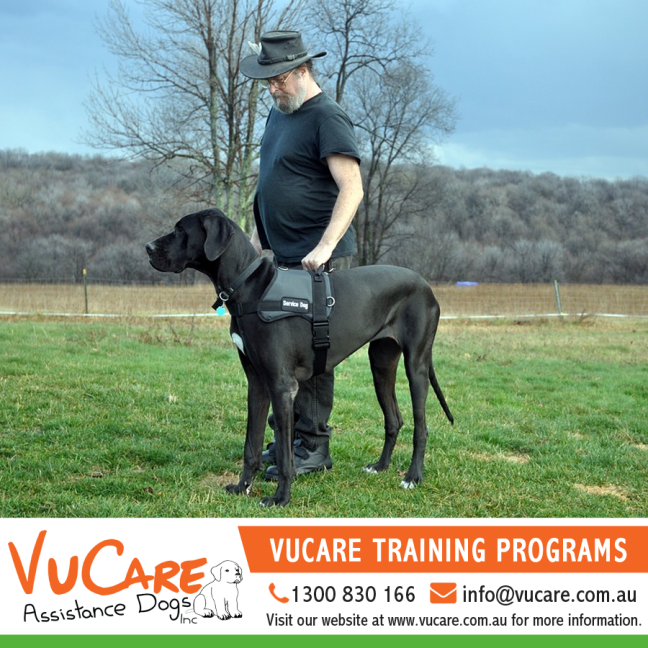
Dog Therapy for Diabetes Patients
Hypoglycemia unawareness is a common — and serious — illness that can develop in people that have type 1 diabetes. This state means you don’t experience the symptoms most people do when their blood sugar gets too low. Standard symptoms of low blood sugar include sweating, shaking, or confusion. At very low amounts, you may experience seizures, or go into a coma if your blood sugar is too low for too long. Among the options for this state is guy’s best friend: a diabetes service dog.
Dogs have a naturally heightened sense of smell which makes them excellent hunters. Professional trainers have learned to use these abilities by training dogs to recognize specific scents. These could comprise the fruity smelling ketones a man’s body creates when they may be experiencing a hyperglycemic episode when blood sugar is too high, or the exceptional smell someone gives off during a hypoglycemic episode when blood sugar is too low.
A diabetes service dog isn’t a replacement for assessing glucose levels. Nevertheless, it’s a safeguard for those who experience episodes low or high blood sugar, particularly if they don’t have warning symptoms.
Who trains service dogs?

There are several service dog training plans across the country. As an example is VuCare Assistance Dogs in Australia.
It is an organization to train a dog to understand the difference between specific smells. This contains the smell someone releases when their blood sugar is high or low.
In accordance with VuCare Assistance Dogs, there are two degrees of service dogs for patients with diabetes. Medical alarm dogs for diabetes are trained to react to signals that an owner may be experiencing low glucose levels, once they’ve become symptomatic. A diabetic watchful dog, on the other hand, is trained to understand changes in a man’s blood chemistry, which frequently permits the dog to alarm the individual or the health professionals to take actions in the significant window of time 15 to half an hour before symptoms occur.
Dog breeds trained to perform diabetic alert dog duties can include:
- Golden retrievers
- Labrador retrievers
- Poodles
If someone has a dog they want to train to become a diabetes watchful dog, they are able to submit it for testing to ascertain if the dog has the character and scenting skill needed. Most service dogs are between 1 and 2 years old when they can be set with their owners.
Dogs are trained to respond in different manners to an owner who’s having a high or low blood sugar episode. Examples include:
- holding a special toy inside their mouth as a sign
- jumping on the owner
- sitting and staring at the owner
- touching the owner with its nose
Dogs may also perform other tasks in addition to alerting their owners about changes in blood sugar. These may comprise:
- Alarming other family members if an owner wants help
- bringing needed items, including drugs
- Recovering a cell phone for help
- Sometimes, dialing a rapid respond hotline using a specific device, if help is needed
What should you consider before getting a service dog?
Not all people with diabetes may gain from, or want, a diabetes service dog. Examples of people that could reap the benefits of service dogs contain:
- those with hypoglycemia unawareness
- those who control their blood sugar using an insulin pump or injections
- those who experience low blood sugar levels often
- Kids who need regular blood sugar testing at nighttime
- college students who are now residing away from home and need added support
- If you or a loved one don’t experience frequent episodes of hypoglycemia or you’re capable of controlling your blood sugar with oral drugs, you may not need the extra expense and obligation of a service dog.
When it comes to expenses, insurance companies may cover the costs related to a diabetes service dog. Nevertheless, their owners in many cases are required to take health insurance for the dog, in addition, to provide for food and other veterinary expenses related to caring for the dog. Having a diabetes service dog is an investment in time and funds, and is a relationship that may ideally survive at least a decade for the dog and owner.

About VuCare Assistance Dogs
VuCare operates as a not for profit organization that provides support with medical aids and has a goal to train Assistance Dogs and Companion Dogs to improve the quality of life and increase the level of independence for people with disabilities. VuCare Assistance Dogs and Companion Dogs offer their new owners greater independence increased mobility, enhanced confidence and higher self esteem.
For more information call us on 1300 830 166 or email us at info@vucare.com.au. Visit VuCare Assistance Dogs website at http://vucare.com.au.







